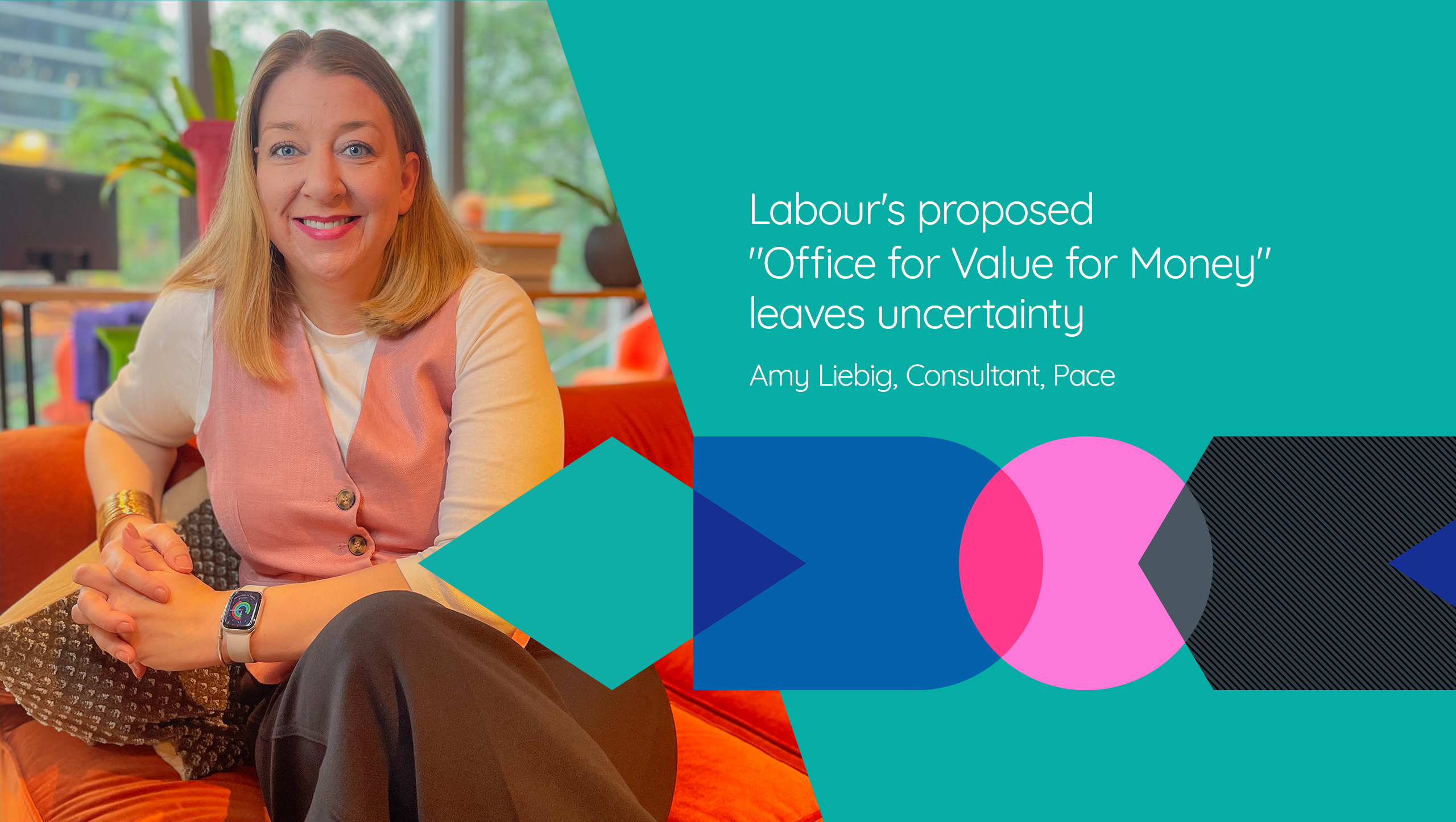“Office for Value for Money" leaves uncertainty

Labour’s proposed introduction of an ‘Office for Value for Money (VfM)’ will leave some organisations that are currently reliant on Treasury funding uncertain about the future.
To prepare for the anticipated increase in scrutiny of public spending from this new office, government agencies need a shift in mindset, explains Pace Principal Consultant, Amy Liebig; establishing value for money should become an inherent part of all public sector project planning at the outset. Rather than waiting until you are at the stage of writing the business case, value for money should be established at the outset of public sector project planning and validated throughout the project’s life.
Labour’s approach to value for money will likely encompass policy delivery to ensure societal value, not just benefit-cost ratios (BCR), is measured as an outcome for taxpayer-funded projects. Traditional business cases often fail to account for policy delivery, as monetising policy outcomes is complex. Liebig points out, “This challenge has eluded past governments and should be addressed through the development of this new office to measure and marry the detailed outcomes of a project to the strategic intention set out in policy.” ‘Liebig explains that project teams need to become more proficient at translating policy intentions into a series of public sector planning stage gates, often referred to as ‘the golden thread’.
The proposed Labour plans will leave some Government agencies grappling with practical implementation under the proposed policy changes. Amy Liebig highlights, “Many government initiatives are discussed at a high level without substantive detail, leaving organisations unsure how to meet these new requirements. There is a clear need for strict scrutiny of public spending and budget cuts where value for money isn’t demonstrated”.
Liebig advises project owners that adhering to three basic principles can ensure projects stand up to scrutiny for any government agency needing to shore up portfolios:
- Assess spending across your agency’s entire portfolio against the strategic intention of government policy. Does this spending help achieve progress towards the policy’s intended outcome?
- Understand that proving value for money involves evidencing the successful outcome of spending with both quantitative and qualitative data. Begin to recognise that social value, is value and that the old benefit-cost ratio measures should only be one methodology used, to avoid the exclusion of large cross-sections of society. Use real-world observation and qualitative data to assess the impact of spending on the notion of building a better society.
- Ensure that all projects are delivered and managed sustainably. Overdelivering is just as bad as underdelivering because it highlights a weakness in planning and will fail to demonstrate value for money. Fit-for-purpose and right-size solutions should be the standard. One handy tip is to use the MoSCoW acronym in project planning and cost management: Must-have, Should-have, Could-have, and Won’t-have to refine solution requirements.
Liebig concludes, “These three small steps form the beginning of a holistic approach to balancing cost efficiency with achieving the strategic intention of policy, setting organisations up for success in an era of heightened fiscal scrutiny.”






-01%20(2)%20bw.png?width=1440&height=1440&name=2025%20ST_HUNDRED_LOGO_HOIZ_1x1_RGB%20(1)-01%20(2)%20bw.png)